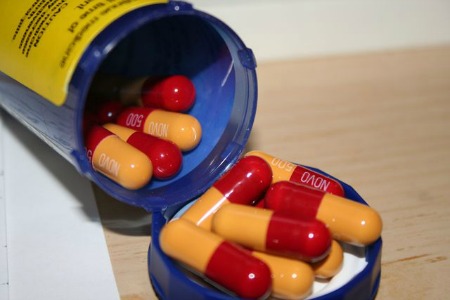For the past several years, the medical community has warned about the dangers of superbugs, which are potentially deadly strains of bacteria that no longer respond to antibiotics as treatment.
Well the proof is in the pudding---American scientists claims that a 30 percent decline in the efficacy of antibiotics may be responsible for some 6,000 deaths each year.
The team of scientists, lead by Professor Ramanan Laxminarayan from the Center for Disease Dynamics, Economics and Policy in Washington, D.C., also set out to discover what would happen if antibiotic resistance increased by a third (which it’s apparently on track do).
The researchers focused particularly on patients having common operations and undergoing chemotherapy treatments for cancer.
The results of the study, recently published in the Lancet, reported that this kind of antibiotic resistance could lead the U.S. to 120,000 additional resistant infections and 6300 more related deaths each year.
Laxminarayan said that at one time, antibiotics were the bedrock of medicine, but their reduced effectiveness pose deadly consequences.
The researchers estimate that in present day, half of the infections that occur post surgery are due to antibiotic resistant bacteria. They also found that 1 in 4 infections treated after chemotherapy with antibiotics are antibiotic resistant. This issue is leaving patients extremely vulnerable and presents an uphill battle for doctors and other health workers.
The BBC quoted Laxminarayan saying, “The danger is that antibiotic resistance is squeezing the value out of modern medicine.”
He said antibiotic resistance has already lead to the deaths of two vulnerable demographics in the “developed world”: newborn infants and the elderly.
Laxminarayan is now advocating for public health experts to develop strategies against antibiotic resistance both nationally and internationally.
UK health experts had previously expressed concerns on the dangerous impact of antibiotic resistance on routine surgery, with the England’s Chief Medical Officer Dame Sally calling the issue a ticking time bomb in 2013.
Laura Piddock, professor of microbiology at the University of Birmingham and the director of Antibiotic Action has also been vocal about the dangers of antibiotic resistance.
She wants the research to be a wake up call to American drug companies and hopes the information will lead to research on new bacterial infection treatments.
For more information, see the Lancet study here: http://press.thelancet.com/antibioticresistance.pdf

